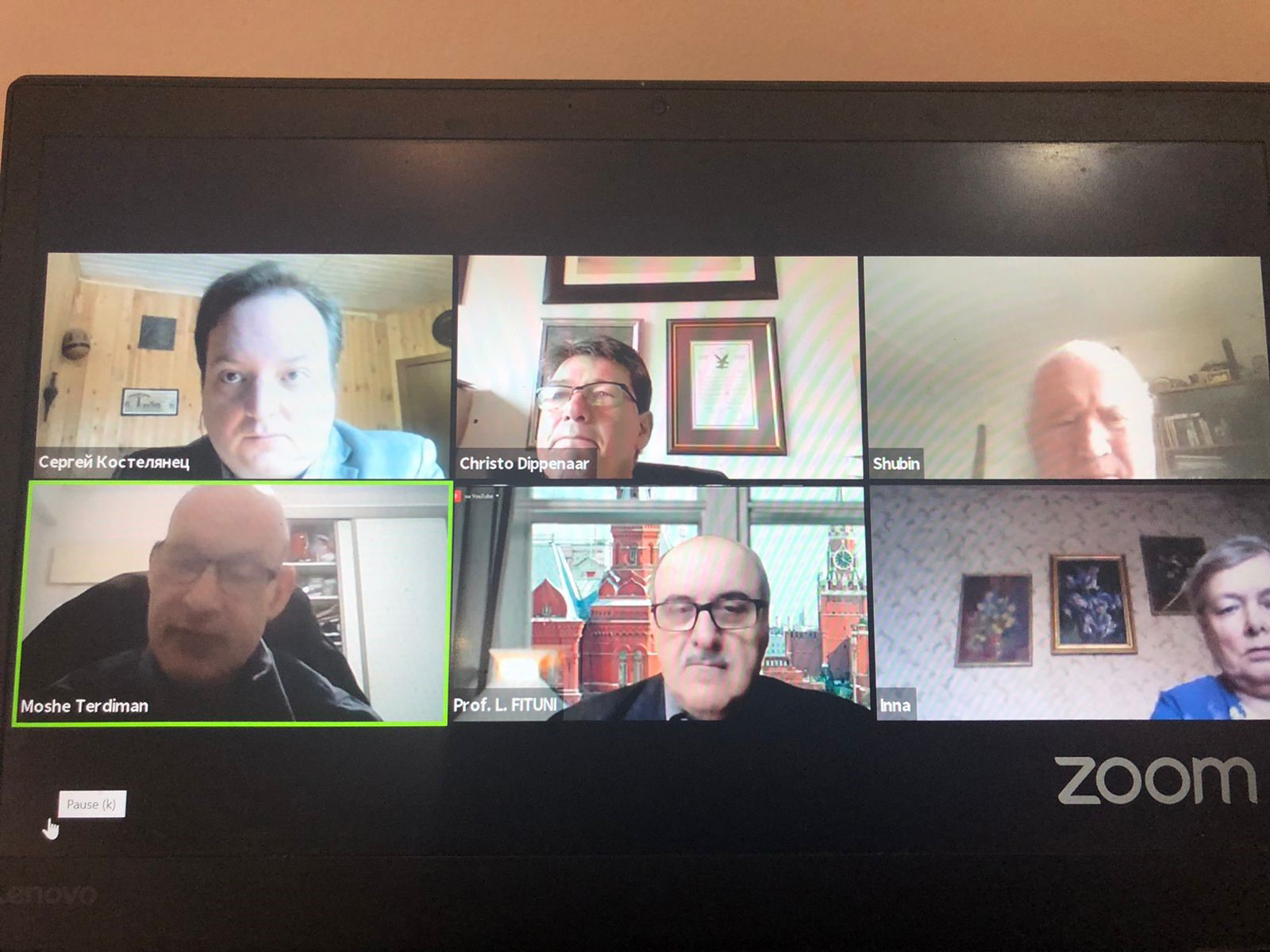
Featured Item

Africa at sea about growing terrorism
Stretching from Libya in the north to Mozambique in the south, from Mali in the west to Somalia in the east, over the past two decades, Africa has become a theatre for terrorist activity.
Unemployed youth are being radicalised through modern technology and environmental degradation. Terrorist leaders provide seemingly simple answers to complex questions, such as, “Kill, and you will go to heaven.” And states seem all at sea about what to do about it.
This was the key thread running through a dozen presentations in a Zoom webinar titled “New Frontiers of Terrorism in Africa”. The virtual event was jointly hosted on 17 March by the Institute for African Studies (IAS); Russian Academy of Sciences from Moscow; the department of political studies and governance at the University of the Free State (UFS) in South Africa; and the Ezri Center for Iran and Persian Gulf Studies at the University of Haifa (UoH) in Israel.
Professor Theo Neethling (UFS) analysed the increasingly brutal Islamist extremism in northern Mozambique since 2017. There have been 800 attacks in the area, and 2 600 people have been killed, with 700 000 displaced. This insurgency is trying to impose Sharia law in southern Africa. The perpetrators have linked up with Islamic State (IS), and have been dubbed “the Al-Shabaab of Cabo Delgado”. This area is rich in oil and natural gas, and has attracted massive investment from international oil giants amid a sea of poverty and underdevelopment. These investments are seriously threatened by the violence.
Mozambique’s armed forces have proven too weak to counter the threat, opening the door for Russian and South African private security firms. They have also had no tangible success. Organised crime in the area – the smuggling of drugs, timber, rubies, ivory, and human beings – exacerbates the conflict as it boosts the coffers of extremists.
Professor Hussein Solomon (UFS) discussed terror in the Sahel region that cuts through the Sahara, describing the situation “a humanitarian catastrophe”, with thousands killed and millions forced to flee their homes. One reason is “poorly trained and equipped armed forces”, Solomon said. In spite of intense training from the United States (US) , “Mali’s armed forces are no match for the Islamists, who have captured an area the size of France in northern Mali.”
Solomon said the US and France failed miserably due to ignorance of local culture, the nature of the African state, and African armies. “Paris and Washington,” he said, “fundamentally misdiagnosed the challenges of terrorism in the Sahel, viewing insurgents as part of global jihadists incorporated, the local franchises of Islamist extremist parent bodies.” While appealing in simplicity, “to speak of a global war on terrorism in the African context is fundamentally wrong. The real challenge is domestically-based terrorism in fragile societies.”
This builds on deep-rooted corruption, bad policies, and authoritarianism in the Sahel, as ethnocentric nationalism has been stirred up, reinforcing socio-economic cleavages and worsening poverty. The “politics of identity” is rife. The region needs more democratic and responsive governments, and more inclusive economic development.
Dr Anneli Botha (UFS) discussed terrorism in East Africa, saying the region had experienced a 141% increase in terrorist incidents between 2015 and 2020. The use of firearms increased 159% in the period, and explosives use rose 26%. Use of knives was up 111%. She also noted that the age of those radicalised was getting progressively younger. The solution lies, she said, in building specialised counter-terrorism capacity and fixing social welfare and education systems.
Professor Leonid Fituni (IAS) said that terrorists had used non-government organisations and new charities to channel financing during the pandemic under the guise of relief. Cyber-fraud and funds from the African diaspora had increased. However, tracking mobile money is difficult.
Dr Sergey Kostelyanets (IAS) looked at Russia’s growing counter-terrorism efforts in Africa since 9/11. Moscow had concluded 30 bilateral military co-operation agreements with African countries, and 20 since 2015. These entail regular counter-terrorism and intelligence sharing operations, weapons sales, and sharing Russia’s anti-terrorism database.
These ties are related to geopolitical competition with the West, Russia trying to end its international isolation (after annexing Crimea from Ukraine in 2014) and protecting the security interests of Russia and African states. One weakness has been the lack of multilateral agreements in this area, for instance with the African Union. Another is the lack of transparency.
Dr Moshe Terdiman (UoH) explained why the environment is a tool for terrorists in Africa – for recruitment, funding, and promoting their agendas. Climate change and drought in the Sahel have increased suffering and created openings for terror groups. People displaced by environmental damage and governance failures have become recruits for groups such as Boko Haram in West Africa. Natural-resource revenue is a major funding stream for extremist groups. Al-Shabaab makes millions from elephant poaching and the illegal ivory trade. IS in Libya has launched attacks on energy and water infrastructure.
It’s clear that terrorism in Africa isn’t going away, and demands more serious attention and action than it has received thus far.










